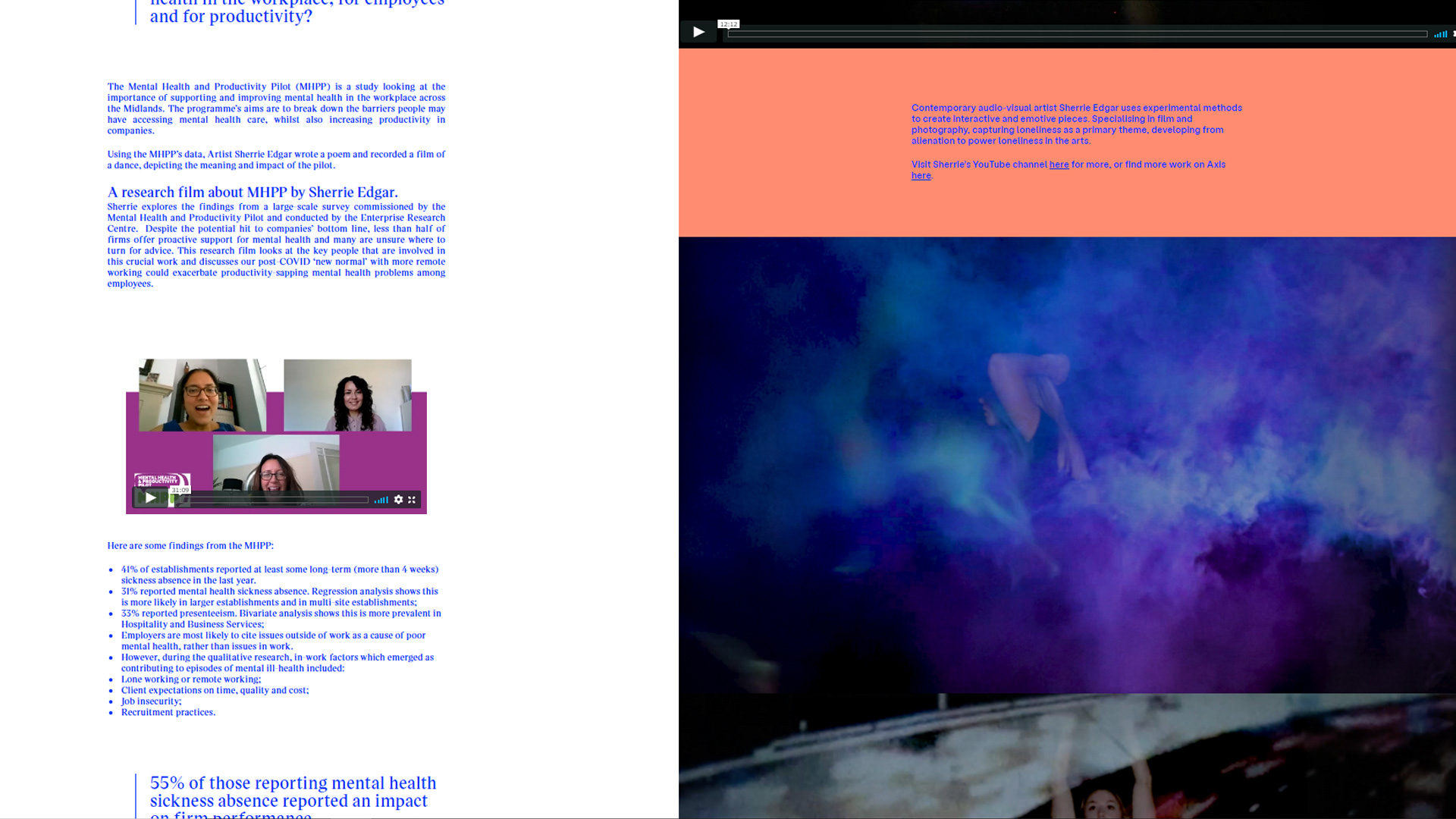


Here is the downloadable link to the research report which was used as a basis for the digital media production for my artwork project with MHPP.
The report is the results of a recent survey for the MHPP with 1899 Midlands employers to understand the engagement, attitudes and behaviours of Midlands employers with workplace wellbeing and mental health. Some good statistics summarised below:
• 41% of establishments reported at least some long-term (more than 4 weeks) sickness absence in the last year.
• 31% reported mental health sickness absence. Regression analysis shows this is more likely in larger establishments and in multi-site establishments;
• 33% reported presenteeism. Bivariate analysis shows this is more prevalent in Hospitality and Business Services;
• Employers are most likely to cite issues outside of work as a cause of poor mental health, rather than issues in work.
• However, during the qualitative research, in-work factors which emerged as contributing to episodes of mental ill-health included:
• Lone working or remote working;
• Client expectations on time, quality and cost;
• Job insecurity;
• Recruitment practices.
• 55% of those reporting mental health sickness absence reported an impact on firm performance;
• Experiencing long-term sickness is associated with productivity which is lower by 27.2 per cent;
• Sickness related to mental health is associated with productivity which is lower by 18.3 per cent;
• Firms reporting a situation in which mental health impacted their performance was associated with productivity which is lower by 24.5 per cent.
• These are significant associations between productivity and long-term and mental health sickness absence, but our research suggests these costs may not be known to many employers, as they do not measure productivity.
• 44% of establishments provided some form of proactive support to their employees in terms of mental health, and 48% of these had provided training to line managers. Larger establishments are more likely to do so.
• Of all firms, just over a fifth (22%) had a mental health plan; 35% had a health and well-being lead at senior or Board level and 40% used data to monitor employee health and well-being.
•Almost two-thirds of firms said they would like to provide more mental health and well-being support to their staff (64%).